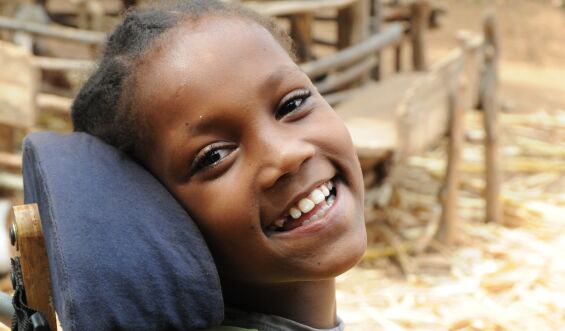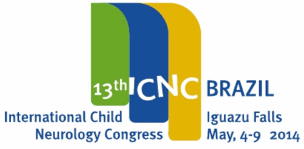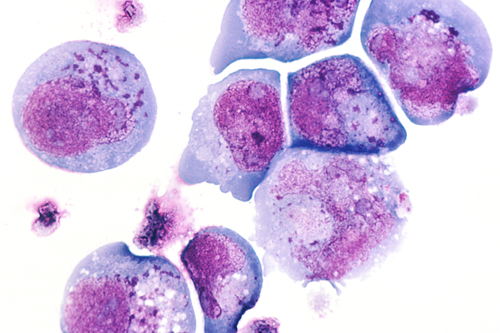 After the successful "Epilepsy in Childhood" meeting in Uganda in February 2012, the International Child Neurology Association is once again organising a meeting on a neurology topic which has been identified as important to practice in Africa. This meeting will be held in Cape Town in February 2013 and will focus on "the ideal and the optimal management of children with Cerebral Palsy in the African context".
After the successful "Epilepsy in Childhood" meeting in Uganda in February 2012, the International Child Neurology Association is once again organising a meeting on a neurology topic which has been identified as important to practice in Africa. This meeting will be held in Cape Town in February 2013 and will focus on "the ideal and the optimal management of children with Cerebral Palsy in the African context".
In order for us to ensure that the content of the meeting is relevant to your practice, please fill out the attached questionnaire. As before, each country will have an opportunity to send a representative which will be supported financially by ICNA. Ideally this should be a specialist from your country with a particular interest in managing children with neurodisabilities.
Please could you, or the most appropriate doctor in your region, complete the questionnaire using the link below?
Questionnaire on Cerebral Palsy Management in the African Context - [English Version] [French Version]
We expect that this meeting will be highly sought after and would also ask that whoever is considered most appropriate to represent your region that they also submit a motivation as well as a brief CV. Representatives will be chosen on the basis of their direct involvement with the management of children with CP and the availability if funding support.
We look forward to hearing from you
Kind regards
Read More
- Details
- ICNA
- News
- Hits: 750
 An International Workshop “Rare Diseases and Orphan Drug Registries” organized in the framework of the EPIRARE project (“European Platform for Rare Disease Registries”, co-funded by EU Commission, DG SANCO) will be held from October 8-9, 2012 at the Italian National Institute of Health – Viale Regina Elena, 299 - Rome (Italy).
An International Workshop “Rare Diseases and Orphan Drug Registries” organized in the framework of the EPIRARE project (“European Platform for Rare Disease Registries”, co-funded by EU Commission, DG SANCO) will be held from October 8-9, 2012 at the Italian National Institute of Health – Viale Regina Elena, 299 - Rome (Italy).
The workshiop is open to scientists, clinicians, patients’ and parents’ Associations, policy makers and enterprises. The main aims of the workshop are:
The main aims of the workshop are:
(i) to share different experiences in the registration of rare diseases, including rare cancers and malformations, in Europe and beyond;
(ii) to highlight the strengths and opportunities of linking rare disease registration activities, orphan drug post-marketing surveillance, etc;
(iii) to promote the sustainability and networking of registration activities;
(iv) to share views in building up a common platform for registration activities devoted to research, public health and other purposes.
EPIRARE (European Platform for Rare Disease Registries) which started officially on April 15, 2011is a three-year project co-founded by the European Commission within the EU Program of Community Action in the field of Public Health.
Deadline for abstract submission is 31st July 2012.
Deadline for registration is 31st July 2012.
Notification of abstract acceptance is 31st August 2012.
Click here for more info
- Details
- ICNA
- News
- Hits: 750
 The International Child Neurology Congress (ICNC 2014) Scientific Program Committee would like to invite proposals for organizing symposia to be held at the 13th International Child Neurology Congress from, May 6-9, 2014, at Iguazu Falls, Brazil.
The International Child Neurology Congress (ICNC 2014) Scientific Program Committee would like to invite proposals for organizing symposia to be held at the 13th International Child Neurology Congress from, May 6-9, 2014, at Iguazu Falls, Brazil.
The International Child Neurology Congress (ICNC 2014) Scientific Program Committee would like to invite proposals for organizing symposia to be held at the 13th International Child Neurology Congress from, May 6-9, 2014, at Iguazu Falls, Brazil.
There will be 12-16 symposia with 3-4 to be held concurrently each morning of the 4 day Congress. Each symposia will be 2 hours in duration and would be expected to have a total of 3-4 speakers drawn from diverse geographic origins.
We expect upto a maximum of 400 participants for each symposium. Proposals are invited from a Principal organiser who may have one other international co-organiser.
The closing date for submission of proposals is September 30 2012.October 15, 2012 All participants, including speakers and session chairs are required to register and pay the standard Congress registration fee.
Please follow the link below to submit your proposal online
http://www.icnapedia.org/icnc2014-symposia-proposals
Michael Shevell, MD CM, FRCPC, FAAN, FANA
Chair
Scientific Program Committee
ICNC2014
Read More
- Details
- ICNA
- News
- Hits: 612
 The British Thoracic Society Guidelines for the Respiratory Management of Children with Neuromuscular Weakness has been published as a supplement to the July 2012 issue of Thorax. The full document can be downloaded via: http://www.brit-thoracic.org.uk/Guidelines/Children-with-Neuromuscular-Weakness.aspx
The British Thoracic Society Guidelines for the Respiratory Management of Children with Neuromuscular Weakness has been published as a supplement to the July 2012 issue of Thorax. The full document can be downloaded via: http://www.brit-thoracic.org.uk/Guidelines/Children-with-Neuromuscular-Weakness.aspx
Read More
- Details
- ICNA
- News
- Hits: 733
 FEBSTAT study suggests that human herpesviruses (HHV)-6B and HHV-7, commonly (roseola virus), account for one third of febrile status epilepticus (FSE) cases. The results of this multi-center study on the consequences of febrile status epilepticus has been published in Epilepsia.
FEBSTAT study suggests that human herpesviruses (HHV)-6B and HHV-7, commonly (roseola virus), account for one third of febrile status epilepticus (FSE) cases. The results of this multi-center study on the consequences of febrile status epilepticus has been published in Epilepsia.
While the incidence of febrile seizures in children under 5 yrs of age is about 5%, 5-8% of these cases are prolonged meeting the criteria for febrile status epilepticus. FSE accounts for 25% of all childhood status epilepticus and 70% of all status epilepticus in the second year of life and is associated with an increased risk of temporal lobe epilepsy (TLE).
The FEBSTAT study looked at 199 children between age 1month – 5 years presenting with FSE and was investigated for herpesvirus infection within 72 hrs of presentation. Polymerase chain reaction (PCR) for HHV-6A, HHV-6B or HHV-7A DNA and RNA along with antibody titers to detect whether the infection was primary or secondary.
Findings indicate that approximately one third of children with FSE had HHV-6 or HHV-7 viremia. HHV-6B viremia was detected in 32% of pediatric participants, with 38 and 16 children having primary and reactivated infection, respectively. 7% of children had HHV-7 viremia at baseline and 2 children had HHV-6/7 primary co-infection. There were no significant differences in age, illness type, fever, seizure structures, or abnormalities in neuroimaging in children with or without evidence of herpes virus infection.
The FEBSTAT study will follow the 199 children involved in the study to determine whether there is an association between prolonged febrile seizures caused by HHV-6B viremia and the development of TLE. Up to 40% of this pediatric population is expected to develop TLE. There is also evidence from previous research by Donati et al. and by Fotheringham et al where they showed HHV-6 in brain samples of patients with TLE.
Temporal Lobe Epilepsy could take upto 8 to 11 years to develop following an episode of FSE and it would take time before the role of HHV-6B is fully known. If the role of HHV-6B in the development of TLE is established, there would a potential for antiviral and anti-inflammatory therapies to prevent the development of TLE.
Citation:
Epstein, L. G., Shinnar, S., Hesdorffer, D. C., Nordli, D. R., Hamidullah, A., Benn, E. K. T., Pellock, J. M., Frank, L. M., Lewis, D. V., Moshe, S. L., Shinnar, R. C., Sun, S. and the FEBSTAT study team (2012), Human herpesvirus 6 and 7 in febrile status epilepticus: The FEBSTAT study. Epilepsia. doi: 10.1111/j.1528-1167.2012.03542.x [abstract]
Read More
- Details
- ICNA
- News
- Hits: 668